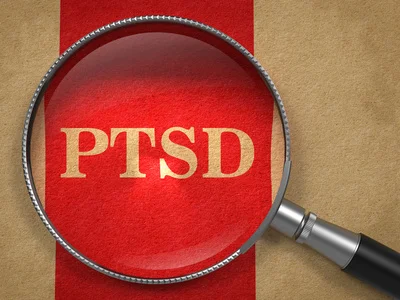Trauma Therapy:
Finding your way back to the light.
Anxiety, anger, irritability. Nightmares. Being easily startled and overly watchful of your surroundings. Avoidance of leaving your home, of crowds, and of activities you used to enjoy. Intrusive thoughts and memories that you desperately want to just go away.
These are some of the symptoms that can appear after trauma. They can interrupt your life in countless ways, impacting your ability to work, to feel close to others, and to maintain relationships. You feel exhausted from poor sleep, waking at the slightest noise. This, plus the nightmares, further damage your ability to function during the day. As you avoid situations that you fear will trigger memories of the trauma--even things that you used to enjoy--your world begins to feel very small. You just want to feel “normal”, the way you felt before the trauma. If the trauma happened when you were very young, you may wonder if it’s even possible to feel the way others seem to feel. Secure. Content. Unafraid.
Trauma can rob us of our peace of mind and quality of life for years. But it doesn’t have to. Trauma therapy provided by a skilled therapist in a safe and compassionate environment addresses the symptoms described above and more, helping you live the life you want.
WHAT IS TRAUMA?
Trauma is any event (or multiple events) that are experienced as shocking, horrifying, frightening, dangerous, and or life-threatening. You may have lived through one event or experienced a period of time in your life (for example, an abusive relationship) in which such events occurred. You may have witnessed someone else experiencing such an event (for example, seeing someone else killed or injured), or you may have heard about someone close to you going through a traumatic event. A variety of difficult situations can produce significant symptoms in the weeks and months following--sexual and/or physical assault, serious accidents, being a victim of a crime, or military combat, to name a few. Symptoms may occur at any point after the trauma. If they last for a month or more, post-traumatic stress disorder (PTSD) may be an appropriate diagnosis, and trauma therapy may be helpful.
HOW COMMON IS TRAUMA?
If you’re suffering with symptoms of trauma, you’re far from alone. According to national surveys looking at the occurrence of PTSD in the general U.S. population, 7-8 percent of the general population suffers from PTSD at some point in their lives (National Comorbidity Survey and the National Comorbidity Survey Replication [NCS-R]). In both of these surveys, women were at least twice as likely to suffer from PTSD as men. Within our military veteran population, the percentage of individuals meeting criteria for a diagnosis of PTSD is substantially higher. Given these statistics, it’s not surprising that evidence-basedtherapy treatments have been developed to address trauma symptoms. (Evidence-based treatments are treatments that have been shown to be effective in research studies.)
WHAT HAPPENS IN TRAUMA THERAPY?
Trauma therapy can be conducted in a group or individual format. Among the advantages of a group format is having support from other trauma survivors. One disadvantage is that you receive less individualized attention. In my practice I currently offer individual trauma therapy.
Our first step in individual trauma therapy is to discuss your symptoms and your treatment goals. These may include, for example, increased comfort when out in public, decreased nightmares, becoming closer to others in existing relationships, building new relationships, and/or feeling less anxious and worried. Once we have identified treatment goals, we will discuss and choose an appropriate treatment.
Choosing an appropriate treatment will depend, in part, on how ready you feel to begin to make some changes and to explore the trauma. It can be very difficult to begin to deliberately think and talk about trauma; there is often an understandable belief that the best thing to do is to NOT think about it. It is this hesitation that frequently keeps people out of therapy and stuck in their trauma symptoms (sadly, sometimes for decades). I understand the strong desire to avoid, and I can help you get ready to do more intense therapy work by first introducing you to helpful coping skills before we begin actually working on the trauma itself. Therapy programs such as STAIR, ACT, and DBT, which are described below, can help prepare you for more intensive trauma therapy. CPT, also described below, more directly addresses trauma symptoms. I offer all of the following therapies.
STAIR (Skills Training in Affect and Interpersonal Regulation) is an evidence-based therapy rooted in cognitive behavioral therapy (CBT). Designed for individuals suffering from PTSD, STAIR specifically teaches skills that address emotions and relationships with others, both areas that typically are impacted by trauma. This program can help build or re-build skills helpful in managing some symptoms of PTSD without doing specific trauma work. STAIR can be used alone or as a pre-cursor to additional, more intensive trauma therapy.
Acceptance and Commitment Therapy (ACT) is an evidence-based therapy that is helpful in learning to manage PTSD symptoms. It has cognitive-behavioral therapy elements in that it asks us to look at our thoughts and to consider more adaptive ways of thinking. However, ACT as applied to PTSD also includes the idea that we will need to accept the reality of trauma (as opposed to trying to act as if it never happened) and allow ourselves to feel the associated emotions (as opposed to ignoring painful feelings) while moving forward with our lives in the present. What helps motivate us to move forward in this way? ACT asks that we consider our values—meaning the aspects of life that we most treasure—as reasons to change our behavior and to move forward in a meaningful way. ACT also emphasizes the importance of mindfulness (a skill you can learn to help keep you present in the moment) in movingtoward our values and a more satisfying life. I have used ACT both in groups and in individual therapy for several years.
Dialectical Behavior Therapy (DBT) is an evidence-based treatment that focuses on building important coping skills including mindfulness, emotion regulation, and distress tolerance. Originally developed as a treatment for borderline personality disorder, DBT has been found to be helpful for patients with other diagnoses, including PTSD. For those with PTSD, DBT skills can be especially helpful to learn before introducing trauma-specific therapy. I have completed DBT intensive training through Behavioral Tech. (Behavioral Tech is the training arm of the Linehan Institute which is led by Marsha Linehan, the developer of DBT.) In addition, I am part of a DBT program team at the Veterans Affairs Outpatient Clinic in Austin.
Cognitive Processing Therapy (CPT) is an evidence-based trauma treatment that assists with the thoughts and memories about the trauma. Sometimes, in the aftermath of trauma, we struggle to make sense of what happened, “why” it happened, how we responded, or how others responded. Some of these thoughts can leave us feeling “stuck” and unable to move forward. CPT starts with education about trauma and its impact on our lives as well as information about how this therapy can be helpful. I’ll work with you to help you become more aware of your thoughts and feelings about the trauma and how they are connected. We’ll work next on learning to question or challenge some thoughts that may be keeping you “stuck” in the trauma. Finally, we will explore together your beliefs about safety, trust, control, self-esteem, relationships, and other people that may have been affected by the trauma. Where needed, we’ll develop some healthier beliefs about these areas that balance what you believed before the trauma with your beliefs after the trauma. This therapy generally takes place in 12 individual therapy sessions. I have received training in CPT through the VA and use this therapy in both individual and group therapy.
SOME COMMON CONCERNS ABOUT TRAUMA THERAPY.
Starting trauma therapy is an important decision and you’re bound to have some questions. Following are answers to a few common concerns about trauma therapy:
What if talking about my trauma makes it worse?
This is a common concern among trauma therapy patients. Realistically, there likely will be points in therapy when your symptoms will flare. But don’t those flares happen outside of therapy already? It is understandable that people who have experienced trauma want, maybe more than anything, to just pretend the trauma never happened. And one way to do that is to try to shove down the feelings, thoughts, and memories about the trauma with the goal of never allowing yourself to experience them again. The problem with that scenario is that it doesn’t really work. Thoughts, feelings, and memories, despite our best efforts, do come out. Often they emerge at some of the worst possible times because we get triggered by things in our environment. Trauma therapy asks you to experience some of the thoughts and feelings associated with trauma in a more controlled situation where you are able to process those feelings with the help of an experienced therapist. By examining some of your beliefs about the trauma and correcting those that are helping to create ongoing symptoms, we ultimately reduce symptoms. So, short term, symptoms may indeed flare for a few weeks in trauma therapy; the payoff is far reduced symptoms overall that allow you to get back to living your life on your terms for the long term.
My trauma happened years ago. Is it too late to make it better?
No. I can’t emphasize this enough! I have worked with individuals whose trauma(s) occurred more than 40 years ago and who have found significant relief through trauma therapy. If your symptoms are still present and causing you distress please consider getting trauma therapy. You’ve suffered with those trauma symptoms long enough.
How long will trauma therapy take?
The primary consideration in answering this question is how much preparatory work you and I decide is necessary before we begin to address the trauma itself. This typically varies from a few weeks to 3-4 months. I want you to have the skills in place to work on the trauma, to understand PTSD thoroughly, and to feel confident about the trauma therapy before we begin. The amount of time this takes generally depends on your history and life experience. The decision regarding when you are ready to start work specifically on the trauma will be made by us together in therapy. The program for Cognitive Processing Therapy (discussed above) is typically 12 weeks, so CPT plus preparatory work will likely take between 3.5 and 7 months. While that may sound like a significant time investment, please consider how long you’ve been suffering with symptoms and then decide the amount of time you’re willing to spend to feel better.
A final thought on trauma therapy… I wish I could say that trauma therapy is a painless process, but it’s not. It’s hard work and it’s critical that it take place in a safe and comfortable environment with a well-trained and experienced therapist. I have previously worked for several years with our nation’s veterans at the Veterans Administration hospitals and clinics providing trauma-related therapy. I have received training in all of the previously mentioned therapies. I have previously worked with female Veterans with a history of military sexual trauma, civilian sexual trauma, or childhood sexual trauma. I provided individual and group therapy to these women, with a focus on the use of STAIR, CPT, and mindfulness. Building trust in the therapy relationship is key to treatment feeling safe and productive. So, as we build that trusting, collaborative relationship, your thoughts and comments will always be welcome and will be received with respect and without judgment. I welcome the opportunity to help you connect or re-connect to the joy in your life.
If you would like to schedule a free consultation or discuss any questions you may have about trauma therapy, please call me, Dr. Jana Drew, at 512-960-5265 or contact me here.







